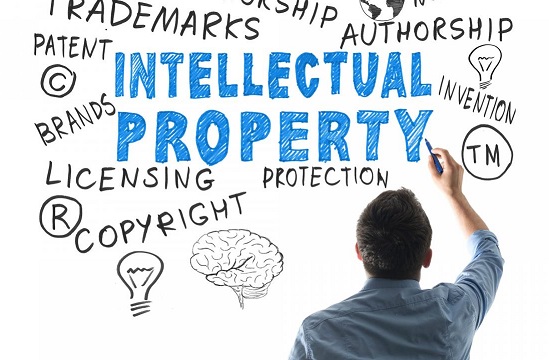

Books and movies are some of the most well-known domains of intellectual property law. However, in order to understand how and why copyright and/or trademark applies to a certain creative media, it is important to understand the difference between copyright and trademark.
Copyrights exist to protect creative works that have already been created. You cannot file a copyright claim for a work that does not exist. They often apply to creative, marketable content (such as books, lyrics, scripts, textual content, online web content, blogs, etc.)
A piece of work can easily have multiple copyrights. For instance, in a book, the copyright for the content may belong to the author, but the copyright for the art belongs to the illustrator. Similarly, in movies, the copyright for cinematography is different from script, which is different from the music and principal photography.
Trademark, on the other hand, exists to protect a brand. More than protecting the actual work, it protects the brand value associated with it (and, as such, its monetary worth). It can be a jingle, a phrase, a word, a font – sometimes even a color (like the Vodafone Red).
But in a world of franchises and big name authors, sometimes their work becomes a part of their brand name. What happens then? Let’s take a look at how copyright and trademark function for books and movies.
Books are one of the main categories of copyright-related intellectual property. However, we must understand what part of a book is actually protected. For one, it is impossible to copyright the title of a book since it is too short and often contains a lot of commonly used words. On the other hand, the actual content of the book is most certainly copyright protected.
Concepts and ideas, however, cannot be copyrighted. That is what makes it possible for many popular tropes and overarching plots to be common for many books. The copyright exists on the actual written words and elements unique to the book, not the plot or real-life derived situations. Interestingly, if characters or titles of your book are closely associated with your brand, you can trademark them instead! For instance, Marvel Comics has a trademark on all its superheroes.
Usually, the trademark of a book belongs to the publisher or producer, not the author themselves. This is because the trademark allows for marketing, reproduction, merchandising, and brand growth. The author’s rights belong to the actual text in the book (provided those have not been signed off to the editorial team or the publishing house).
Intellectual property for movies is a lot more complex, since there are many more people and moving parts involved in creating the final product. The first stage that requires protection is the actual script of the movie. The script is protected by copyright, and belongs to all the writers of it. Sometimes this can include co-writers, sometimes it involves the director (and if it’s an adapted screenplay, it involves the original creators).
Actors and performers also have a chance to negotiate copyright for their work, or trademark for their individual brands. It depends entirely on the production team and the jurisdiction. Generally, actors are hired as employees. Other members of the team who can claim copyright are the soundtrack creators – with different rights going to the composer, lyricist, performer, etc.
There is also reproduction that matters. Movie makers have to sell certain rights to theatres and DVD/Bluray producers in order to legally distribute their work worldwide. Most of the copyright claims you might see on pirated work would be from these distributors, who own the sole rights to share a film.
The final trademark that goes on a film is on the names of unique/famous characters, and the title.
If you aren’t sure on what protects your content, or you want to make a claim, having a legal team by your side is important. Intellectual property laws and claims involve a lot of due diligence, and legal teams are equipped to handle it. Our team at Rahul Dev specializes in it. Why not reach out to us?



